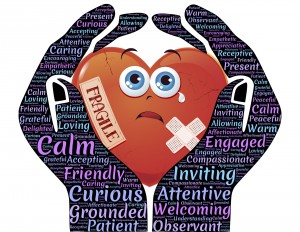Have you ever been hurt by someone? Have you ever hurt someone? Forgiveness is a difficult topic to write about. Whether we are the person who has been wronged or we are the person that has committed a wrong, it hurts because we have invested so much of ourselves into the relationship that has been harmed. Our hearts hurt and we are not always willing to take responsibility, and many times are quick to blame. Taking responsibility for our actions, whether we are the one seeking forgiveness or the one offering forgiveness, is often difficult.
Forgiving can make us healthier and happier in our relationships. The Mayo Clinic shares that forgiveness can lead to:
- Healthier relationships
- Greater spiritual and psychological well-being
- Less anxiety, stress and hostility
- Lower blood pressure
- Fewer symptoms of depression
- Stronger immune system
- Improved heart health
- Higher self-esteem
It is important to note that forgiveness does not take away the responsibility of the other person. Forgiveness is something that you offer another person, and this can happen without excusing the act.
What if you are the person who needs to ask for forgiveness to restore a relationship? Audrey Kasting, Relationship Rx Facilitator at the University of Tennessee, says that following the three “R’s” can help:
- Responsibility: When you own and acknowledge your behavior, you are showing the person that you wronged that you understand how you have negatively impacted the trust that you once shared.
- Remorse: Put yourself in the other’s shoes and verbalize how your behavior was hurtful to the other person
- Repair: Use “I” statements and say what you are sorry for.
Reinhold Niebuhr said, “Forgiveness is the final form of love.” Not only is it an act of love for another person, but it is an act of love for yourself. By asking for forgiveness when it is necessary, and by forgiving when the opportunity arises, you will find yourself experiencing more empathy and compassion, leading to healthier relationships and a healthier you.


